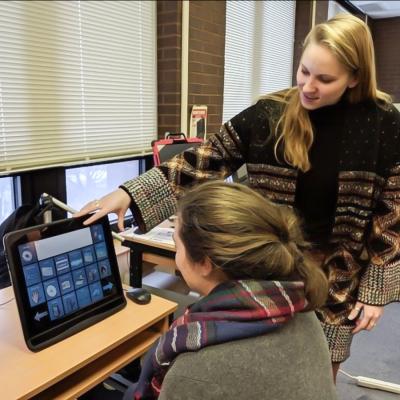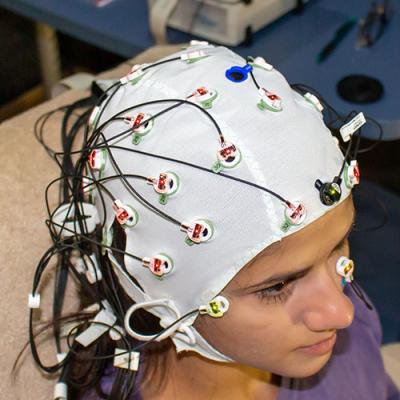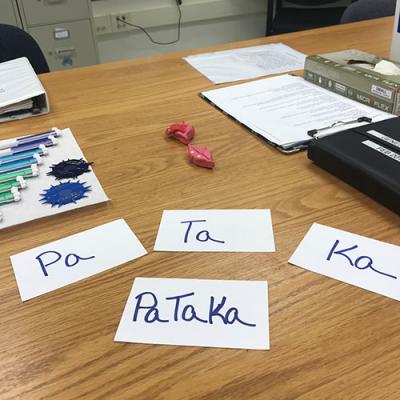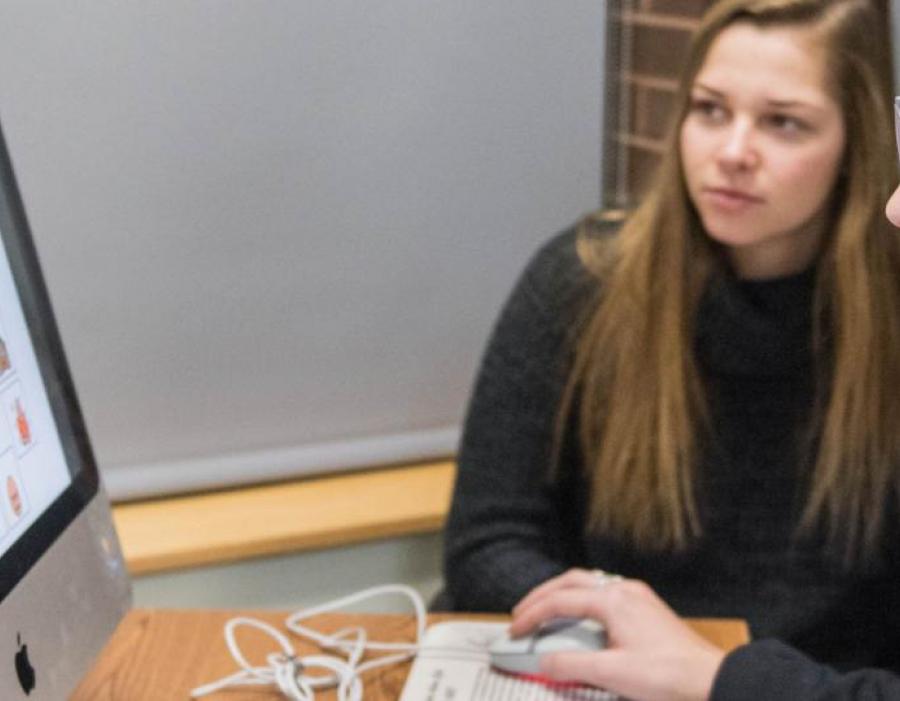Research Labs - Program Landing Page
We strive to be international leaders in research that:
-
improve the quality of life for individuals with disabilities or differences that may impact communication or swallowing;
-
promote the understanding of communication disorders; and,
-
contribute to the knowledge of communication in individuals with typical development.
Areas of Study
Explore our labs and reach out to our graduate research faculty with any questions.

Augmentative and Alternative Communication
Augmentative and Alternative Communication
Transforming the lives of those with complex communication needs through research and technology development
Visit our labs
Language and Language Disabilities Across the Lifespan
Language and Language Disabilities Across the Lifespan
Using the tools of cognitive science and neuroscience to enhance research
Visit our labs
The Speech Core: Speech Production and Perception
The Speech Core: Speech Production and Perception
Studying spoken language processes in healthy individuals and those with communication disorders
Visit our labs
Oral Motor Control, Speech, Voice, and Swallowing
Oral Motor Control, Speech, Voice, and Swallowing
Answering complex questions related to aging and oral motor control for skilled behaviors like speech and swallowing
Visit our labsFacilities and Technology
Researchers in CSD utilize and have access to cutting-edge, clinically-relevant research tools, including:
- Tools of cognitive neuroscience (e.g. fMRI, fNRI, and EEG) to understand neural processing of speech and language in those with and without speech differences, including individuals with autism, Down syndrome, stuttering, ALS, and aphasia
- Behavioral measures including time course methods, such as eye-tracking and speech kinematics, to map relations between cognition, speech, and language in those with and without developmental and acquired language disorders
- Ground-breaking technology to enhance augmentative and alternative communication interventions
- Electromagnetic articulography to examine tongue movements related to speech intelligibility
- fMRI to study neuroplasticity in the brains of aphasia patients following therapy
- Electromyography and custom-designed instruments to study sensation and movement in lips and tongue in typical and atypical populations
- Acoustic pharyngometer and fiberoptic endoscopic evaluation of swallowing (FEES) equipment used to improve assessment and screening of dysphagia
- Behavioral measures to map relations between cognition, speech, language, voice, and swallowing in developmental and acquired language disorders
- Portable ultrasound system to visualize tongue movements during speech production in research and clinical settings
Get involved
Graduate Students
In keeping with our innovative and interdisciplinary mission in communication sciences and disorders, the research possibilities here are extensive and diverse. As a master's or doctoral student, you’ll gain firsthand experience in conducting groundbreaking research as part of a research lab. Research experiences may include working with participants, collecting and coding data, listening to data samples, conducting data analyses, writing scientific papers, and presenting your findings at academic conferences.
Undergraduate Students
Undergraduate students are encouraged to participate in research opportunities to further their understanding in communication sciences and disorders. Review the labs listed above and reach out to the faculty researcher to inquire about openings. Many students also participate in research through labs in the Center for Language Science. Visit the HHD Undergraduate Research page to learn more.
Research participants
Explore the labs listed above for research opportunities. Many researchers also list open studies on Study Finder under Language and Linguistics, Neurology, Autism, and/or Education.
Talk to us about our research
Faculty and students from the Department of Communication Sciences and Disorders regularly present at national and international conferences. View our events calendar for upcoming presentations or click the links below for more information.

